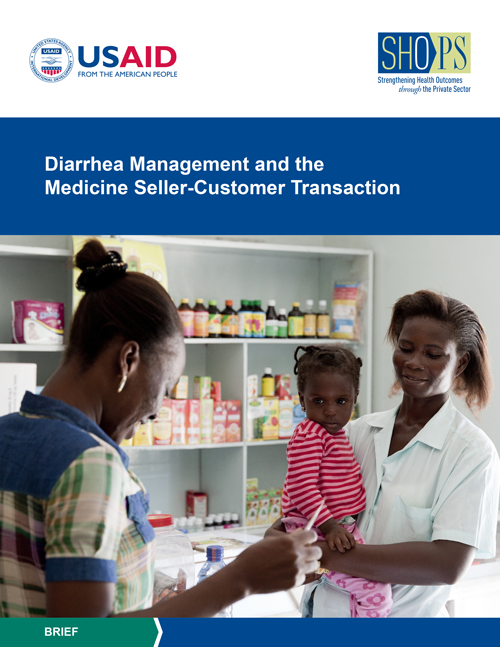
Resource Library
Diarrhea Management and the Medicine Seller-Customer Transaction
This brief presents results from a qualitative study on factors that influence and perpetuate gaps between knowledge and practice among community-level medicine sellers. The SHOPS project trained medicine sellers in new diarrhea management protocols, and explored how the dynamics between these medicine sellers and their customers shaped transactional outcomes. While medicine sellers often act as first-line medical providers, they lack the status of clinicians and are motivated to maintain their customer base, which leads to a power imbalance that favors customer requests and diminishes opportunities for educational interaction. The findings suggest that behavior change efforts targeted at both providers and consumers should incorporate components that consider the dynamics between medicine sellers and customers.
Resource Type : Brief
Country : Ghana
Year : 2015-11-23T00:00:00
Language : English
Project : SHOPS


